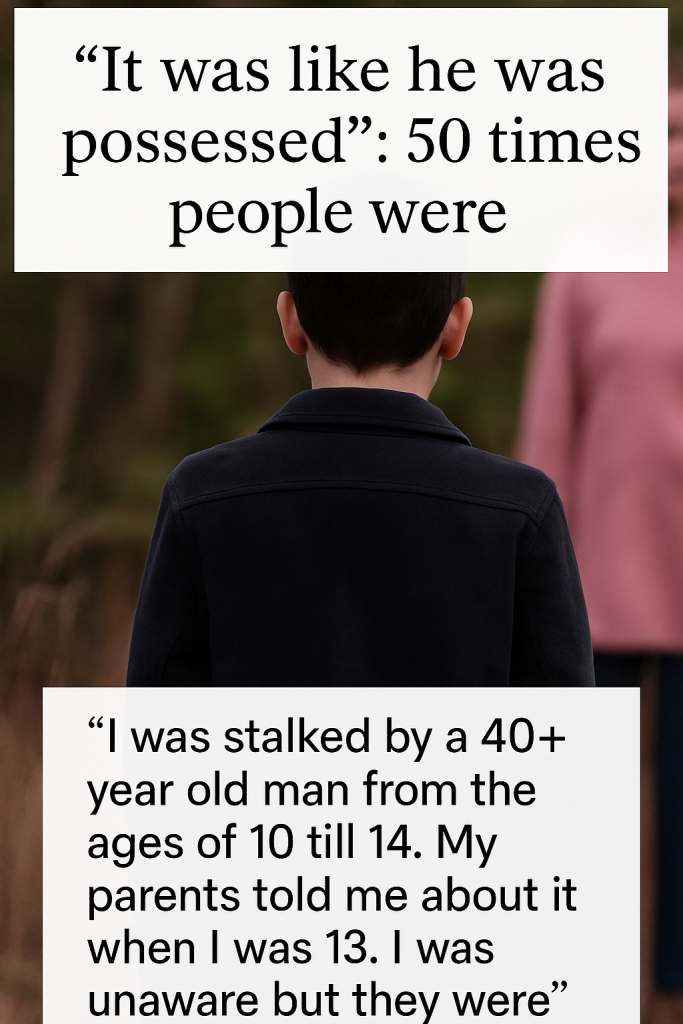In the digital age, the horrors of stalking can follow victims into every corner of their lives, leaving lasting psychological scars. A recent surge of shared experiences under the chilling phrase “It was like he was possessed” highlights the terrifying reality faced by many—particularly young individuals stalked relentlessly by much older men.
One of the most harrowing accounts involves a woman who revealed she was stalked by a man over 40 years old from the tender age of 10. The ordeal, which stretched over several years, left her feeling perpetually unsafe and haunted by fear. Her words, echoed by dozens of others, paint a troubling portrait of obsession, manipulation, and a chilling absence of boundaries.
Across various social media platforms, more than 50 people have come forward to share their own nightmarish stalking experiences. Many stories describe behaviors that go beyond typical harassment—instances of persistent following, invasion of personal spaces, repeated unwanted contacts, and eerie facades of seemingly “possessed” or compulsive energy by perpetrators. These accounts reveal how stalking is rarely about mere chance encounters; it is an aggressive, calculated violation that can persist for years.
Stalking and Its Psychological Toll
The victims often describe the psychological torment as equally damaging as the physical threat. Anxiety, paranoia, insomnia, and deep-seated trauma are common consequences. Several survivors detailed how the stalkers’ obsessive focus disrupted their sense of normalcy and safety, sometimes forcing them to change schools, jobs, or relocate entirely.
What makes these stalking stories particularly disturbing is the significant age gap between the victims—often young minors or teenagers—and the perpetrators, who are frequently decades older. Experts emphasize that this age disparity exacerbates the power imbalance and vulnerability of the victim, making such cases emblematic of predatory behavior.
Challenges in Legal and Social Responses
Despite increased awareness of stalking as a serious crime, many victims recount frustrations with legal and law enforcement processes. Orders of protection can be difficult to obtain or enforce, and surveillance or harassment may continue regardless. Fear of retaliation or disbelief further silences victims, leaving them isolated.
This has led advocates to call for more robust laws, victim support systems, and public education on the signs and dangers of stalking, especially involving offenders with obsessive patterns akin to “possession-like” compulsions.
A Call to Listen and Act
The surge of sharing these 50-plus accounts serves a vital role: it amplifies awareness and encourages others who might be suffering in silence to speak out and seek help. It also challenges communities to create safer environments and to rigorously address stalking incidents with empathy and seriousness.
Ultimately, these real-life stories are sobering reminders that stalking can devastate lives and that vigilance, support, and prompt action are crucial in preventing victims from enduring long-term trauma.
If you or someone you know is experiencing stalking, seeking guidance from trusted organizations and law enforcement is essential. No one should have to live in fear or feel that their safety is negotiable.



